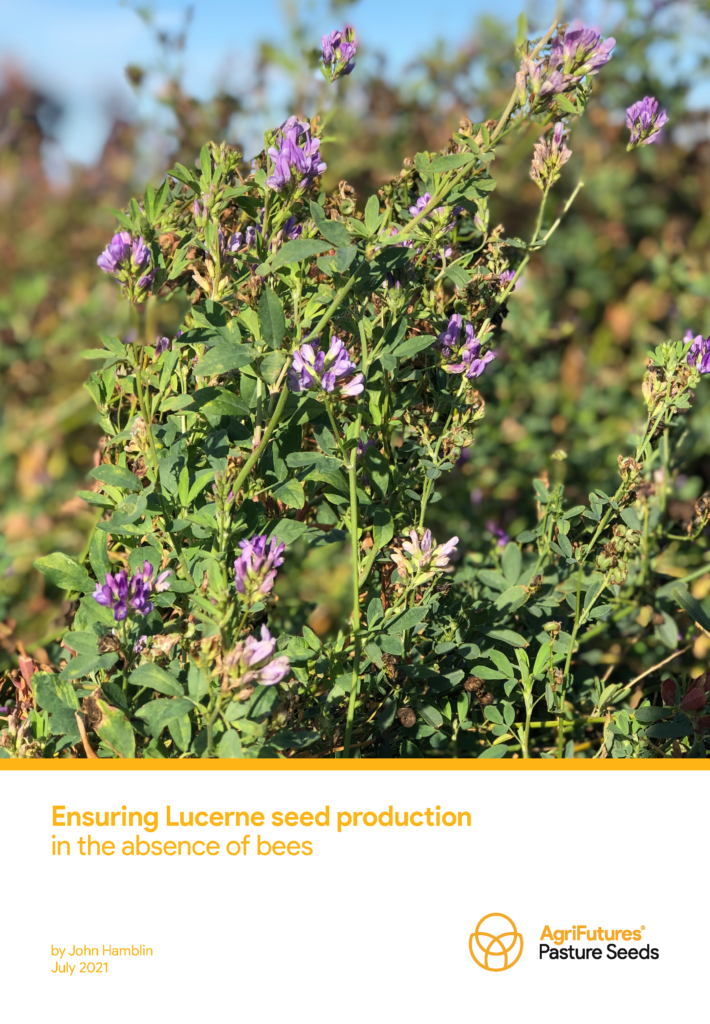Lucerne is a globally important crop. It is used as an animal feed, both as a grazing pasture and to produce conserved fodder; it provides a break crop in cereal crop rotations; and improves soil conditions. Given Lucerne’s importance across a number of agricultural industries, it is also a valuable seed crop.
Effective Lucerne seed production is reliant on pollinators; in Australia, pollination is typically achieved by honey bees. This reliance on bees and other pollinators for seed production raises concerns about the potential impact of pollinator decline on Lucerne seed production. To address these concerns, a scoping project was undertaken to investigate the development of self-pollinating Lucerne genotypes.
A pedigree breeding program was developed under this project to enable the screening of a very large population of diverse Lucerne genotypes, with the aim to identify genotypes that consistently set seed in the absence of pollinators.
The key finding was that some Lucerne plants were able to seed in the absence of bees, thus self-pollinate. These Lucerne plants did not occur commonly and their ability to self-pollinate over multiple years was often unreliable. One population was identified that set seed consistently over three generations in the absence of bees.
Seed from this potentially self-pollinating population has been collected and saved for use in future research. More research and breeding is required to determine the ability of the population to reliably self-pollinate and the applicability of the other phenotypic traits of the population to meet the current market requirements of Lucerne.
This population provides an avenue for researchers and seed breeders to continue developing the population. This may result in the development of a commercially available variety capable of self-pollination. Although there is still a significant amount of work to achieve a commercial reality for this work, this is the first step to creating more security for the Lucerne seed industry and those industries reliant on Lucerne in the face of pollinator decline.





